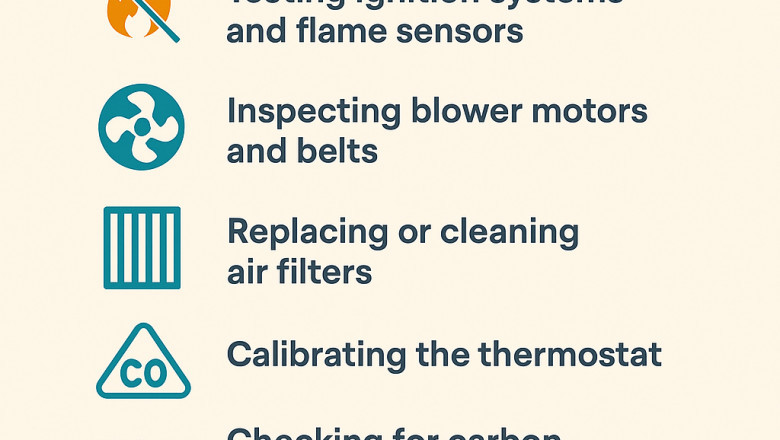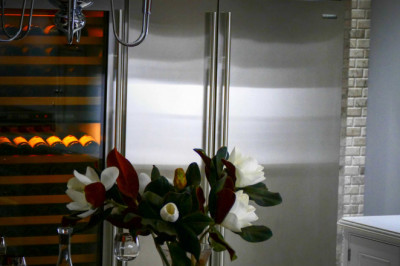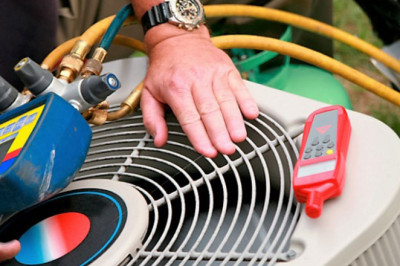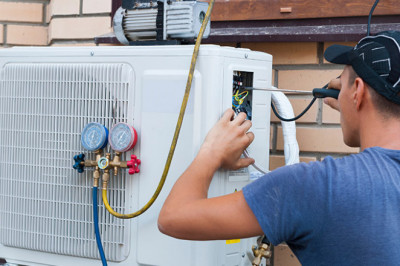views

It may seem counterintuitive, but HVAC repair professionals will tell you—the off-season is the smartest time to get ahead of issues that could leave you in the cold when winter returns.
Whether you're relying on a furnace, boiler, or heat pump, your heating system deserves attention before the cold weather rush. Here's why smart homeowners take care of heating maintenance when it's hot out.
1. You’ll Beat the Fall Rush
Once the weather turns cool, HVAC companies get slammed with service calls. Everyone starts firing up their heating systems, and suddenly a surge of emergency calls floods the schedule. If you wait until fall or winter to book a tune-up or repair, you might be waiting days—sometimes weeks—to get an appointment.
By scheduling service in summer, you avoid the seasonal rush and can pick a time that works best for your schedule. Technicians are often more available, which means less stress and better service.
2. You’ll Get Better Pricing on Parts and Service
During the off-season, many HVAC companies offer discounted rates on heating maintenance and HVAC repair. Since demand is lower, you might also find better pricing on replacement parts, tune-up packages, and even full system upgrades.
If your furnace is older or underperforming, summer is also a great time to explore rebates or specials on new heating systems—without the pressure of needing immediate heat. That means you can take your time making the right decision.
3. It Gives You Time to Plan for Bigger Repairs or Replacements
Heating repairs can sometimes be quick fixes—a new ignitor, a cleaned sensor, or a replaced filter. But other times, an issue uncovered during a tune-up might point to a more expensive repair or an aging system that needs to be replaced.
If you find out in summer that your heating system is on its last leg, that gives you time to plan your next steps. You won’t be rushed into a costly emergency replacement during the coldest week of the year. Instead, you can research options, compare prices, and even schedule installation when it works best for your household.
4. You’ll Reduce Your Risk of Breakdowns in Winter
Most heating emergencies are avoidable. Dirty burners, worn-out parts, clogged filters, and faulty sensors often start showing signs long before they cause a breakdown. Unfortunately, those signs usually go unnoticed until the system completely stops working—often in the middle of a freezing night.
A summer inspection allows your HVAC technician to catch small problems before they become big, expensive ones. Preventive maintenance helps reduce the chance of emergency calls and can even extend the life of your system by years.
5. It Improves Energy Efficiency Before It Costs You
Even when your heating system seems to be working fine, it could still be quietly draining your wallet. Something as simple as dirt buildup on the burners, a thermostat that's slightly off, or restricted airflow from a partially blocked vent can force the system to run longer and harder than necessary. That means higher winter energy bills even though nothing seems "broken."
Getting your furnace or heat pump serviced in summer means a pro can fine-tune these small issues before they snowball. Cleaning internal components, adjusting the thermostat, checking blower performance, and optimizing airflow helps your system run efficiently. You’ll head into winter with a system that heats your home faster, more evenly, and without overworking—so you're more comfortable, and your energy bills stay in check.
6. It Helps Keep Your Indoor Air Cleaner Year-Round
While heating systems are designed to warm your home, they also circulate air—and whatever’s in it. If your blower is coated in dust, your filter is clogged with pet hair or pollen, or your ducts have mold or debris buildup, those contaminants get pushed into the air you breathe. This can make your home feel stuffy and trigger coughing, sneezing, or allergy symptoms.
Summer HVAC servicing gives your system a deep reset before fall. A technician can vacuum out dust from the blower motor, replace neglected filters, and inspect ductwork for signs of moisture or mold growth. They might also recommend a specific upgrade—like switching to a MERV 13 filter or adding a UV purifier—based on your home’s needs. These steps help you maintain consistently cleaner, healthier air all year.
7. It’s Just Easier to Do It Now
Let’s be honest: when temperatures drop, we get busy. Between the holidays, family events, and unpredictable weather, it’s easy to push HVAC maintenance to the bottom of the list. You don’t want to be stuck in a cold house, wishing you’d taken care of things earlier.
Summer offers a window of opportunity to check heating off your to-do list when life is a little calmer. You’ll thank yourself when that first cold snap hits and you’re warm, comfortable, and stress-free.
What a Summer Heating Service Typically Includes
When you book a heating system service during the summer, here’s what a typical HVAC repair or tune-up might cover:
Many companies offer seasonal maintenance plans, which can help you stay ahead of both heating and cooling issues with reminders and bundled pricing.
Final Thoughts
Scheduling heating maintenance in summer may not feel urgent, but it’s one of the best ways to protect your home, comfort, and budget before temperatures drop. You’ll beat the rush, save money, avoid surprise breakdowns, and enjoy peace of mind all winter long.












